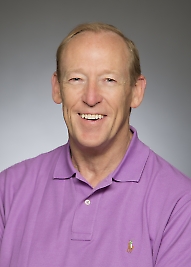News & Events
MSC03 2060
300 Terrace St. NE
Albuquerque, NM 87131-0001
Physical Location:
Clark Hall
Phone: 505-277-6655
chemistry@unm.edu
MSC03 2060
300 Terrace St. NE
Albuquerque, NM 87131-0001
Physical Location:
Clark Hall
Phone: 505-277-6655
chemistry@unm.edu

Profile: Dr. Molander received a B. S. with Distinction from Iowa State University in 1975. He was a Summer Research Fellow at Eastman Kodak in 1974 and 1975. He received his Ph. D. from Purdue University in 1979. He was a Postdoctoral Research Associate with Professor Herbert C. Brown at Purdue University from 1979 to 1980 and with Professor Barry M. Trost at the University of Wisconsin from 1980 to 1981. Dr. Molander’s research is the development of new synthetic methods and their application to the synthesis of organic molecules. One of the group's objectives is to expand and improve the installation of boron into organic substructures through the development of reagents such as bis-boronic acid, and to expand Suzuki coupling reactions of organoboron compounds. In this regard, robust, air- and water-stable potassium organotrifluoroborates (R-BF3K), are employed to carry out couplings under relatively mild conditions using non-toxic components. The group has recently developed an alternative mechanistic paradigm for cross-coupling using a double metal-catalyzed photoredox process, and we are also employing organotrifluoroborates as precursors to a variety of novel borazines. Finally, unique polyfluorinated organoborons are being developed.
Abstract: Many organic reactions are mechanistically driven by two-electron processes. Although such methods are highly effective for a vast number of transformations, there are still many such conversions that have proven challenging (e.g., cross-coupling of alkylmetallics) or that suffer from harsh reaction conditions or intolerance of sensitive functional groups.
The limitations of such transformations are often inherent to the mechanism of these processes at the most fundamental level, and thus predispose many of these reactions for failure. Processes transpiring via single electron mechanistic paradigms have promise to resolve some of the aforementioned limitations.
Described will be our efforts to develop a suite of radical precursors for alkyl cross-coupling with a variety of electrophiles, emphasizing the tolerability of the developed conditions to an unprecedented array of functional groups. The value of generating radicals in a process that is synchronized and catalytic will be emphasized. Sequential transformations based on radical chemistry will be outlined, both in dual catalyzed processes and in radical/polar crossover processes where a subsequent catalytic transformation is not utilized. Finally, applications to DNA-encoded library synthesis will be presented.
See Announcement